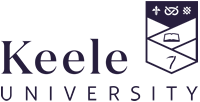About the Project
We are looking to recruit a Ph.D. student with a relevant biomedical science or biology background to join our research group at Keele University. Our research is focused on the infectious disease malaria, that affects about one third of the world population. The central thematic of our research is to identify novel pathways and proteins that might be targeted for innovative antimalarial treatments.
This work will be jointly conducted at the School of Medicine and the School of Pharmacy & Bioengineering at Keele University.
Malaria is a global health problem requiring world-wide action and research effort. This infectious disease, due to Plasmodium parasites, caused ~200 million cases and a daily rate of over 1,000 deaths (mainly <5 years old children). A protective vaccine is still missing and available drugs diminish their impact against infection as resistance is expanding, including resistance against artemisinins (the best currently used drugs). In order to neutralize drug resistance and the high failure rate in valuable compounds reaching the market, multiple NCEs and validated targets are needed.
Both the standard approaches for drug discovery, target-based and organism-based screens have showed intrinsic limitations. Anti-malarial drug discovery is additionally hindered by the substantial lack of knowledge about fundamental mechanisms regulating the complex and unusual Plasmodium life cycle. Therefore, this project to redress some of these limitations will apply for the first time a transversal investigation that, spanning both target and drug identification, will investigate specific events of Plasmodium asexual cell cycle and reveal chemical moieties and genes, both related to the events under study. The highly novel methodologies applied in this project will allow to greatly expand the biological understanding of the Plasmodium cell cycle, identifying novel chemicals and essential/critical genes that, with defined phenotypic patterns, affect and are involved in malaria cell progression, respectively.
The 3-year Ph.D. project will be aimed at mechanistically validating the genes and pathways identified by the random mutagenesis approach, evaluating their potential as drug targets. The experimental plan will include several techniques such as cell culturing procedure advanced molecular biology and genetic modification (DiCre, CRISPR/Cas9, library construction, flow cytometry, microscopy, western blots, and other biochemistry techniques).
Application Requirements: Please provide a cover letter, your highest academic transcript/certificate, a CV and the details of two referees.
Informal enquiries are welcome and should be directed to the principal investigator, Dr Ilaria Russo ([Email Address Removed]).
Eligibility: Applicants should have (or realistically expect to gain) a degree or equivalent in biomedical sciences, biology or relevant field. Posts are open to UK and non-UK nationals. For these latter ones, in case they obtained an official offer of the PhD, the obtainment of their Visa clearance before the initiation of the PhD is mandatory.
Teaching: A commitment to teaching as a graduate teaching assistant at the School of Medicine is required for this post. Teaching activities will be in support of undergraduate learning in the MBChB course, which is likely to be demonstrating in practical classes. This will be remunerated, with an expected commitment of up to 4 hours per week in termtime. Precise activities will be agreed with Dr Russo and Professor Fricker.
Please quote ISTM2019_05 in your application.

 Continue with Facebook
Continue with Facebook

